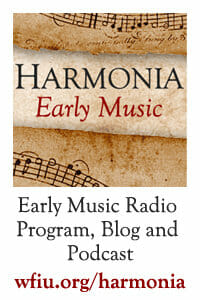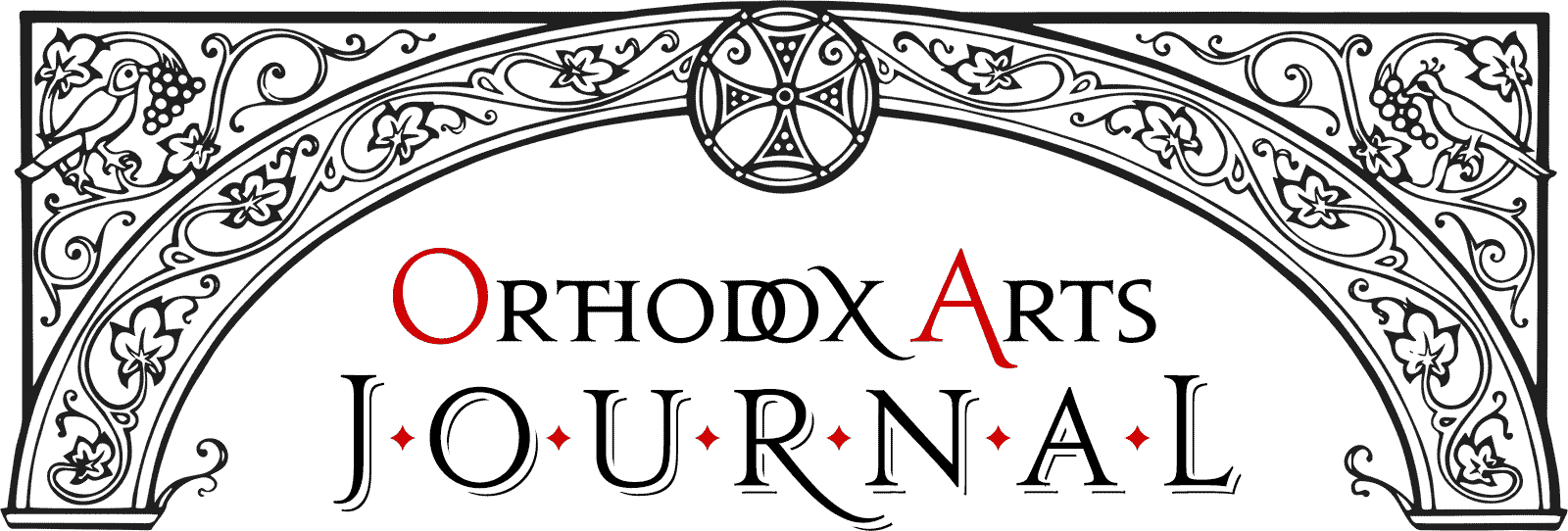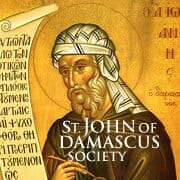Similar Posts
The mission of The Saint John of Damascus Society is “revealing Orthodox Christianity through its sacred music”, and one part of how we seek to do this to be a collaborative partner for existing arts organizations and entities on projects promoting Orthodox liturgical music.
Our first collaboration to reach the public eye is a segment on Byzantine Christmas music that we have written for NPR’s early music show Harmonia.
 We wrote the script for the segment and made the musical selections; Harmonia‘s staff produced it. It will be broadcast the week of 17 December; check local listings for when it will be aired in your area. Find the station near you that airs Harmonia here; there’s also a Facebook event for an additional reminder. This is a bit of an experiment for all concerned, so if you like what you hear, please contact either your NPR affiliate or Harmonia directly and tell them, “Hey, I liked this! More, please.”
We wrote the script for the segment and made the musical selections; Harmonia‘s staff produced it. It will be broadcast the week of 17 December; check local listings for when it will be aired in your area. Find the station near you that airs Harmonia here; there’s also a Facebook event for an additional reminder. This is a bit of an experiment for all concerned, so if you like what you hear, please contact either your NPR affiliate or Harmonia directly and tell them, “Hey, I liked this! More, please.”
To give a brief overview of The Saint John of Damascus Society:
The Saint John of Damascus Society is a 501(3)(c) federal tax-exempt non-profit arts organization based in Bloomington, Indiana. Our mission statement is “Revealing Orthodox Christianity through its sacred music”. A list of our Executive and Advisory Board members may be found here.
The Society grew out of the planning efforts for the 2010 Orthodox Music Symposium at Indiana University, and since its official incorporation as a non-profit in 2011, the Society has sought to continue the efforts begun by the Symposium by organizing and performing events of public interest centered on the liturgical music of the Orthodox Christian Churches, including a recent presentation at Ball State University as a collaboration with Ball State’s OCF chapter and St. George Orthodox Church in Indianapolis. In the coming year, we will be putting on additional public presentations on Orthodox music, including one at Trinity Episcopal Church in Bloomington, Indiana. We plan to offer the Divine Liturgy at regular intervals in Bloomington, served in particular languages in a particular musical idiom, as a public outreach effort. We are starting with a Greek-language liturgy sung with antiphonal Byzantine chant choirs; future such liturgies will include a Slavonic-language celebration with Znammeny chant, as well as Arabic. We are preparing the publication of the first issue of our journal, Paraklitiki, and we also are planning a presentation at the federal penitentiary in Terre Haute, Indiana in the coming year.
To give a nutshell description of our goals in the coming years locally, regionally, and nationally:
- Locally, to support activities that use Orthodox music as outreach – activities that will be of musical, academic, and spiritual interest in a university town. To put it a different way, to raise the profile of Orthodox Christianity in Bloomington by contributing to the town’s cultural profile and that has its own particular infrastructure. This includes lecture presentations, workshops, and concerts, and to the extent possible, partnering with other local arts organizations to do it. Along similar lines, we also seek to be the first point of contact for other arts organizations when expertise in the area of Orthodox music is required.
- Another broad, long-term (and I stress long-term) local goal would be to establish a reputation for Orthodox music in Bloomington that is roughly commensurate with the reputation of the Jacobs School of Music. We hope that it will make sense for Orthodox parents to send their college freshman who has grown up loving to chant (whatever the particular national heritage) to Indiana University, because, hey, it’s a great school, and they’ll also be able to participate in and learn a lot about singing in church there too.
- Another part of the local function of the St. John of Damascus Society is to help build the choir and chanting ministries at All Saints Orthodox Church, Bloomington’s local Orthodox parish, into a robust program that strives for an iconographic level of musical quality and is dynamically engaged with education and outreach at all levels. Ideally, such a program would incorporate both an adult musical education program as well as an active youth choir or choirs, serving to form children into capable Orthodox church singers and leaders as adults. Establishing the funding sources necessary to pay for these goals is an additional part of the objective.
- To stress again that the objective is to be outwardly focused — and to the extent possible, local efforts also need to include activities that serve the community and don’t just try to sell them on the aesthetic value of Orthodox music. Prison outreach is something we’ve already discussed as a component of this, but there are lots and lots of other opportunities out there for us to – as Dr. Harold Sabbagh, our Society President, so eloquently puts it — feed the hungry, clothe the naked, and give hope to the hopeless on a local level, and to the extent music can do those things, we should take advantage of those opportunities. If nothing else, we’re helping to bring some amount of beauty into the lives of others.
- Regionally, to organize musical events for the larger area. We are partnering with the St. John Koukouzelis Institute for Liturgical Arts to plan a multi-day Orthodox music festival in 2013 or 2014; we are also planning a festival with our Advisory Board member Kurt Sander at Northern Kentucky University in the coming couple of years. In general, we hope that future such events could establish Bloomington as a “destination” for Orthodox music.
- Nationally, to contribute to the conversation in a way that celebrates the uniquely multicultural Orthodox inheritance of musical excellence and beauty regardless of particular national heritage, encourages both church musicians and non-singers to take an active interest in participating in that inheritance, cultivates the environment for its future, and brings it to the attention of non-Orthodox. It seems to me there is room for voices that can point the way forward in terms of fostering the understanding of what our music does, how it functions, what beauty and excellence mean in this context, how we can support it, and how we can articulate and execute these ideas in a way that makes sense in an American setting. The 2010 Symposium was a first attempt at trying to make those kinds of voices heard, but there is more that we can do.
- Conceptually, we want to encourage and develop the next generation of Orthodox church musicians, because they aren’t going to appear out of nowhere. We want to cultivate an environment where kids might grow up thinking, “Hey, I could be a cantor or a choir director when I grow up!” That’s not something that can really be a vocation at this stage of the game, and in the super long-term it would be good to contribute in some small way to making it more of one. The National Forum of Greek Orthodox Church Musician’s booklet, Starting a Youth Music Program in Your Parish, is a good place to start, but it seems to me that there is more that can be done from there. To this end, we hope to eventually set up a scholarship fund to benefit Orthodox college students at Indiana University who want to pursue the study of their Church’s music.
All of these things are just a taste of what we hope to do and what we’re actively planning to do. We hope that you’re intrigued, and we hope you’ll want to learn more.


[…] 7:25 amclick to expand…The Saint John of Damascus Society on NPR’s “Harmonia Early Music” https://orthodoxartsjournal.org/the-saint-john-of-damascus-society-on-nprs-harmonia-early-music/Tuesday, Dec 11th 7:00 amclick to expand…Thou, Oh Christ, art the Kingdom of Heaven; Thou, Oh […]
The episode is now online here. Our segment is about fifteen minutes in, and we are credited at the very end. Please click “like” on the website if you are so inclined, and if you liked it, please tell Harmonia that you want to hear more!